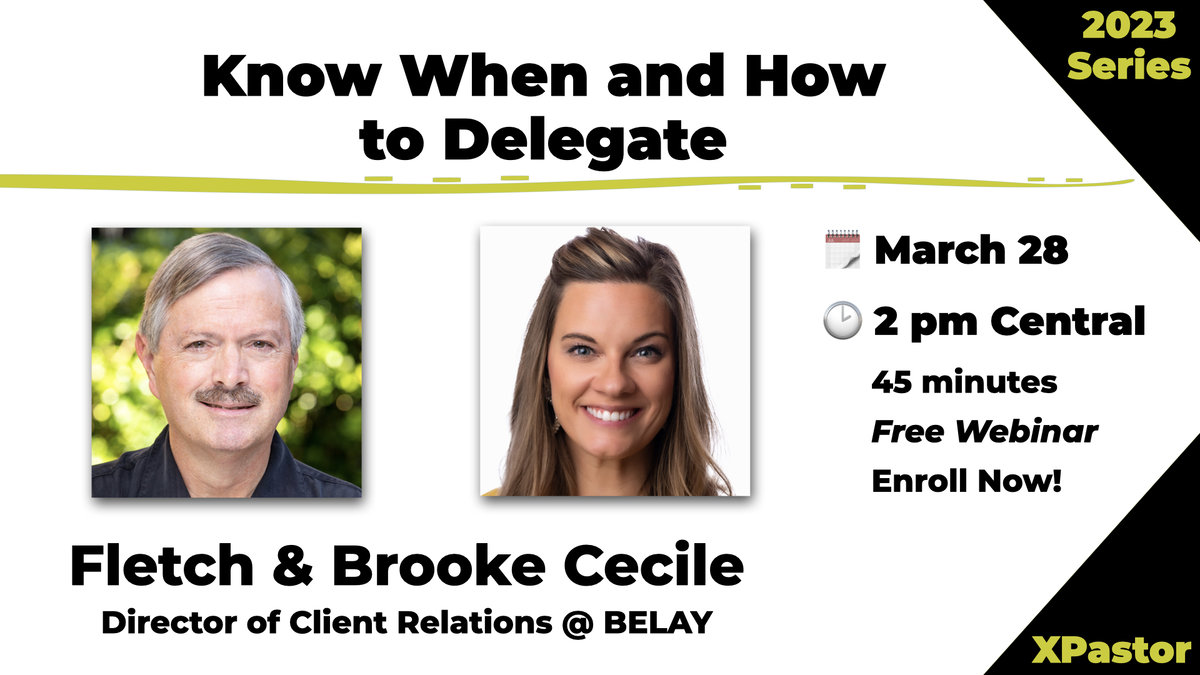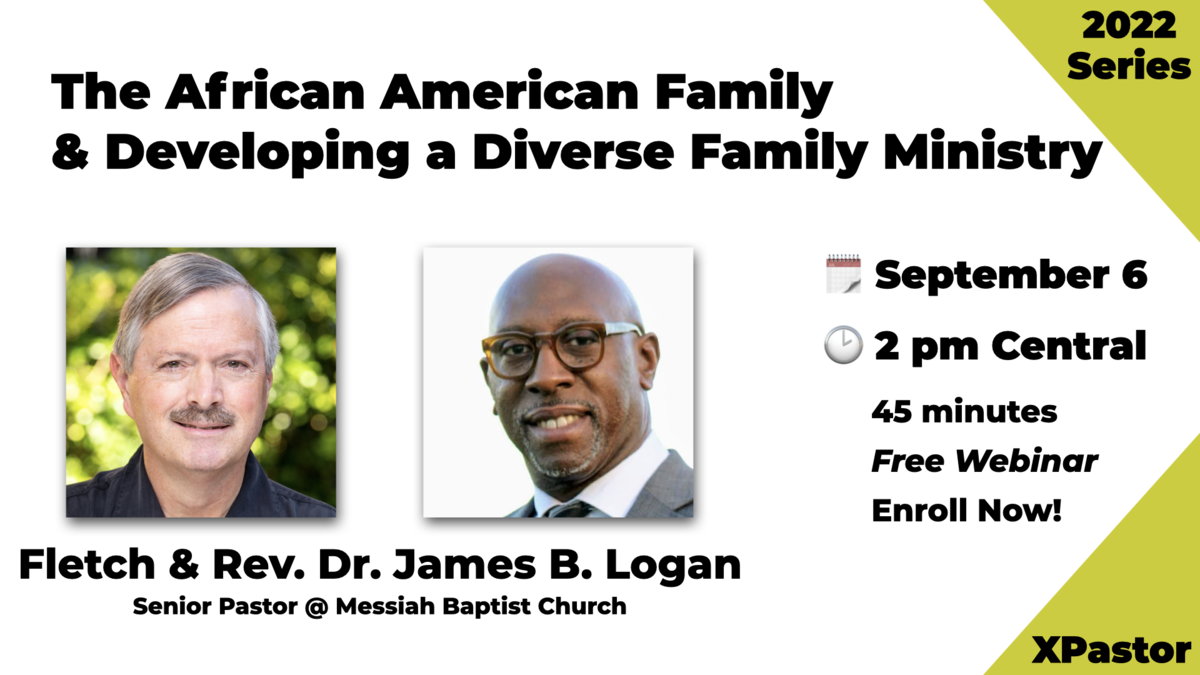XPastor tries to help churches by providing some of the essentials for running a church—items like job descriptions, employment applications, review forms and policies. Below is the 1999 Church Restoration Policy of Northwest Bible Church in Dallas, Texas.
Purpose
The purpose of the Northwest Bible Church Restoration Policy is to establish the role of the Church represented by the Board of Elders in the process to reconcile a member with another Christian against whom he or she has sinned, to restore him or her to fellowship with the Lord Jesus Christ through repentance and to encourage purification by his or her confession (collectively referred to as “restoration.”)
Biblical Basis for Restoration
Matthew 18:15-17 is the primary Biblical passage regarding restoration of a Christian by other Christians. Restoration is accomplished according to Matthew 18:15-17, as follows:
And if your brother sins, go and reprove him in private; if he listens to you, you have won your brother. But if he does not listen to you, take one or two more with you, so that by the mouth of two or three witnesses every fact may be confirmed. And if he refuses to listen to them, tell it to the church; and if he refuses to listen even to the church, let him be to you as a Gentile and a tax-gatherer.
The attempt to restore a sinning Christian should be with gentleness (Gal. 6:1). Matthew 5 also calls the Christian to seek out those who feel they have been offended:
Therefore, if you are offering your gift at the altar and there remember that your brother has something against you, leave your gift there in front of the altar. First go and be reconciled to your brother; then come and offer your gift. Settle matters quickly with your adversary who is taking you to court.
Member Restoration
This policy will discuss only how it applies to Christians who are members of Northwest Bible Church. According to Matthew 18:15-17, a member should be restored as follows:
If a Christian is offended by a sin of a member of Northwest Bible Church, he should meet with him in private, communicate that he has been offended by the member’s sin and request his repentance (while expressing a willingness to forgive—Luke 17:3-4) in order that their fellowship might be restored. If the member repents and confesses his sin, restoration, reconciliation and purification can occur.
If the member refuses to repent and confess, the Christian offended by the sin of the member should go to the member with two or three other Christians who can wisely and maturely discern the facts of the case and determine if sin has occurred. If these mature, wise Christians determine without doubt that the member sinned against the offended Christian, it should be clearly communicated to the member and repentance and confession requested in order for restoration with the offended Christian and with God to occur. If the member repents and confesses his sin, restoration, reconciliation and purification can occur.
If the member refuses to repent and confess, the offended Christian may request the Board of Elders to encourage restoration. This is the first time that the church, through its Board of Elders, becomes officially involved.
If the member refuses to repent and confess his sin in order to be restored in his relationship with the offended Christian and God, the Board of Elders may take action it deems appropriate, including termination of membership and disclosure of the sin to the entire congregation.
The motive for such actions would be to encourage future restoration of the member and discourage other members from sinning (1 Tim. 5:20).
Point of Involvement by the Church
As church staff members, Elders, Sunday School teachers, Bible study leaders or others associated with the Church learn of a sin by a member of the church against another Christian, the initial response is important. Restoration of the member should be initiated by encouraging the offended Christian to pursue the course of Matthew 18:15-17 as outlined above. The person encouraged to pursue restoration should discern whether his or her motive is punishment, anger or revenge rather than restoration and whether he or she has willingness to forgive if repentance occurs. For those sins that are of a personal nature, Matthew 18:15-17 states that the Christian that has been offended by the sin has the basic responsibility to go directly to the sinner and, subsequently, with two or more witnesses, if necessary, attempt to resolve the offense. The Elders should not become involved until this action has been taken by the person and this action has not resolved the matter or it has been determined that this step is unnecessary due to the nature of the sin (i.e., the sin effects more than one person in the church, the sin is not of a personal nature, or other extenuating circumstance). If protection and safety of the members and attendees of NBC is a concern or issue, then the sin or sins should be referred to the Board of Elders immediately for direction and handling.
Referrals to Board of Elders
When a Christian notifies the Board of Elders of the commission of a sin against him or her by a member, the Board should take the following steps:
- Determine if the purpose is restoration or protection and safety of the congregation or both. If the purpose is retaliation, revenge or punishment and neither of the above purposes, this policy has no application.
- If the purpose is restoration, the Elder should determine if the first two steps of Matthew 18:15-17 have been properly conducted and that repentance has not occurred. If such steps have not been taken, no further action should be taken until the offended Christian has taken each action and appropriately communicated them to the Elders.
- Determine if a sin has, in fact, occurred and was committed by the member named. The Elders should conduct a thorough, confidential, comprehensive investigation of the facts employing all reasonable techniques within their power to accomplish such determination. The sin should be revealed only to those who are directly involved in the situation and who can help clarify the facts.
- The member will be contacted only after it has been established that there is sufficient evidence to do so. This contact should be done solely on a fact-finding basis, without making any accusations or inferring that a sin actually has been committed. He will be given an opportunity to present his position and present evidence to support it.
- If the Elders determine that a sin has been committed, meetings with the offended Christian and the member will be conducted in an attempt to achieve repentance on the part of the member and reconciliation of the parties. No time limit will be imposed for achieving repentance and reconciliation; however, the matter should be resolved as soon as possible in order to limit the continuing effect of the situation on the offended Christian, the member and the congregation.
- If repentance and reconciliation is achieved, the Elders will review the matter on an ongoing periodic basis to ensure that true repentance and reconciliation was achieved. The sin should not be revealed to the congregation by the church leadership. If the member decides to personally confess and make the sin known to any individuals and groups within the church, he should do so of his own volition without any suggestions or recommendations that he do so by the Board.
- If repentance and reconciliation is not achieved and, after the Elders are persuaded that the member has been adequately made aware of the seriousness of the sin and the consequences of his failure to repent, the Elders will determine the actions to be taken against the member. The Elders will also determine if and to what extent the matter should be revealed to the congregation.
Teaching and Leadership
People under church discipline under our Restoration Policy may not engage in leadership or teaching ministry.











